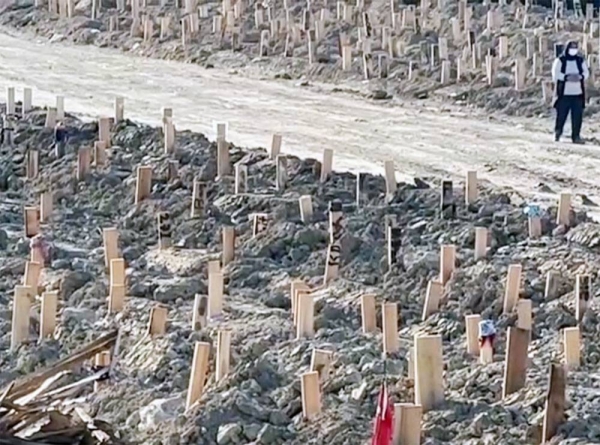
COPENHAGEN (Reuters) - Decomposing mink buried in dirt pits in Denmark following a nationwide cull may have contaminated groundwater, local Radio4 reported on Thursday, citing a government agency report.
The Danish government ordered a cull of some 17 million mink in early November after outbreaks of coronavirus hit hundreds of farms and authorities found mutated strains of the virus among people.
The logistical challenge of disposing of such a large number of dead animals prompted authorities to bury some of the mink in pits in a military area in western Denmark under two metres of soil.
The government later said it wanted to dig up those mink again after some resurfaced from the mass graves, most likely due to gasses from the decomposition process pushing the mink out of the ground.
The new study says groundwater in the area may already have become contaminated and urges authorities to take swift action, Radio4 reported.
The report was commissioned by the Danish Environmental Protection Agency in late November and was prepared by the Geological Survey of Denmark and Greenland and the Technical University of Denmark, Radio4 said.
The Danish Environmental Protection Agency did not immediately respond to Reuters’ request for comment.
The agency is currently conducting additional examinations to assess the environmental impact of the graves, including geophysical probes and drillings. It said on Wednesday it expected the results of those early next year.
Before the interring of the dead mink, authorities had said the burials would not pose a risk to drinking water or protected areas.
The macabre burial sites, guarded 24 hours a day to keep people and animals away, have drawn complaints from area residents about possible health risks. Newspapers have referred to “zombie mink”.











